By Harsh Aryan
Euphoria is without a shadow of doubt, one of the most beguiling shows to air on television screens. No one can deny how cinematic and visually enthralling the scenes are, in addition to the incredibly nuanced characters and intricate storylines that hook audiences every second of every episode. The plot of the series involves a group of high school students who grapple with drugs, sex, love, social media, and money as they come of age while trying to firmly establish their identity. The series’ main character is Rue Bennett, who is portrayed by the revered and celebrated actress Zendaya. Rue is a recovering teenage drug-addict who endeavors to find her place in the world and follows a group of high school students through their experiences of identity while wrestling with her own as well. Rue’s experiences with drug abuse, anxiety, as well as the passing of her father have made her arguably the most heartwarming and relatable character of the show. This essay assesses the personality of Rue Bennet by dissecting her childhood and character development through the lens of Karen Horney’s theory of neurosis and Alfred Adler’s domain of individual psychology. These complementary approaches to the domain of personality psychology will emphasize the importance of a parent, intrinsic human drives, and one’s dependence on coping strategies which snowball into the formation of maladaptive personality traits and ways of life. Through this essay, I hope to answer the question: whether Rue Bennet is deeply wounded or irreparably broken?
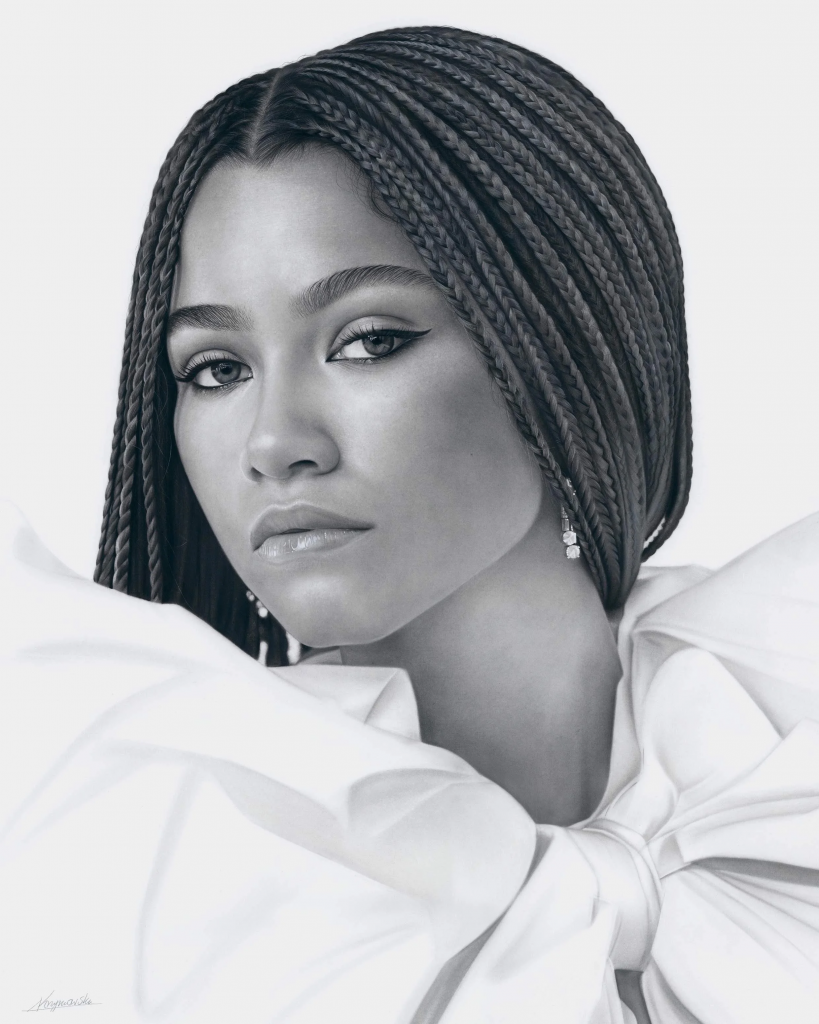
Karen Horney’s theory of neurotic personality is one of the most influential and sophisticated theories that exist in personality psychology. Horney’s theory postulates that neurosis originates from “basic anxiety” that stems from “disturbed interpersonal relationships during childhood.” (Burger 2018, p.98) Horney argues that two basic needs are safety and satisfaction. Children are essentially helpless. The demonstration of genuine affection and warmth towards a child result in a child undergoing normal development. However, the demonstration of indifference, hostility, or even hatred towards the child results in neurosis. Basic evil occurs when parenting behavior that undermines a child’s security. In the pilot episode of Euphoria (Levinson et al 2019), we see that Rue is diagnosed with Bipolar Disorder, Obsessive Compulsive Disorder as well as Generalized Anxiety Disorder. Her parents were neither hostile nor vitriolic towards her. However, it can be argued that later they began to show indifference towards her. Rue grew up in a middle-class, suburban family and her mental health struggles were taking a toll on her family’s finances. This coupled with her father being terminally ill from cancer and eventually expiring, was too much for Rue’s mother (Leslie)- both from an emotional and financial perspective and since Leslie was Rue’s primary caretaker and exhausted with being the backbone of the family, Rue’s mental health spiraled out of control and led to the development of her neurotic needs. Neurotic needs according to Karen Horney, are needs that almost everyone has but if it is not satisfied it can foster the development of intense anxiety, as is the case with Rue. Neurotic people are unable to move flexibly from one need to another as situations arise, but rather they focus more intensely on one or more need (American Psychological Association, 2020). The approach to satisfying these needs is out of proportion to reality, disproportionate in intensity, and indiscriminate in application. Rue clearly exhibits the neurotic needs for affection and approval as well as the neurotic need for personal admiration. This can be seen as she is in deep anguish that her father died under her care and supervision, and she blames herself for his death, when he died of his illness, and she did the best that she could, given that the nurse who oversaw him would “play candy crush on her phone for 2 hours.” (Levinson et al 2019) She desires for people to comfort her, admire, and approve of her efforts because she deeply resents herself for not being able to save her father from cancer.
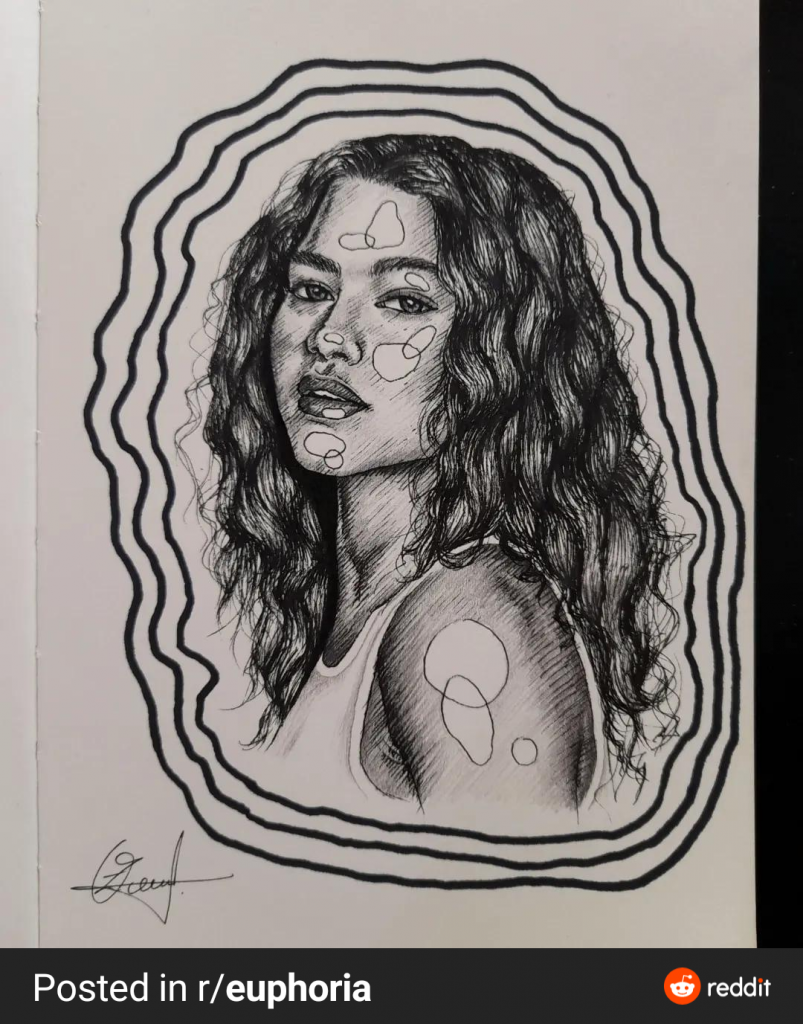
In addition, Karen Horney’s theory also elaborates on specific mechanisms and behaviors that neurotic individuals engage in, to continue spinning a “vicious cycle.” (Burger 2018 p.99) In terms of neurotic adjustment to others, Rue would be seen as someone who is a hostile type. Hostile types are moving against people and seek expansive solutions. They are seen as narcissistic, perfectionist, and arrogantly vindictive. With this type, what appeals to them is not love but mastery. They abhor helplessness, are ashamed of suffering and need to achieve success, prestige, or recognition. They view politeness and friendliness to an end and believe that if they have power no one can hurt them. They have a need for power, exploitation, prestige, and personal achievement and can be seen as hypercompetitive. Rue clearly demonstrates behavior which is indicative of this personality type. In the episode, “Stand Still Like a Hummingbird”, we see a heartbreaking, intense, and poignant interaction between Rue and Leslie (Levinson et al 2019). Rue is a drug addict who has had a lot of struggles with her sobriety, and she is a very meticulous planner as seen as how she beat a drug test- using niacin, synthetic urine, and substituting another friend’s urine for her own (Levinson et al 2019). For a long time, she believed that she would never be able to get caught and would be able to evade her mother’s watchful eye. This is behavior that is indicative of her arrogance as well as her vindictiveness. She is infuriated at herself for not being able to save her father and she is punishing herself by slowly finding ways of taking her own life and testing her body’s limits, and she is terrorizing her mother Leslie, and her younger sister Gia by smashing wooden doors, hitting her mother, breaking glasses, and tackling her little sister (Levinson et al 2019).
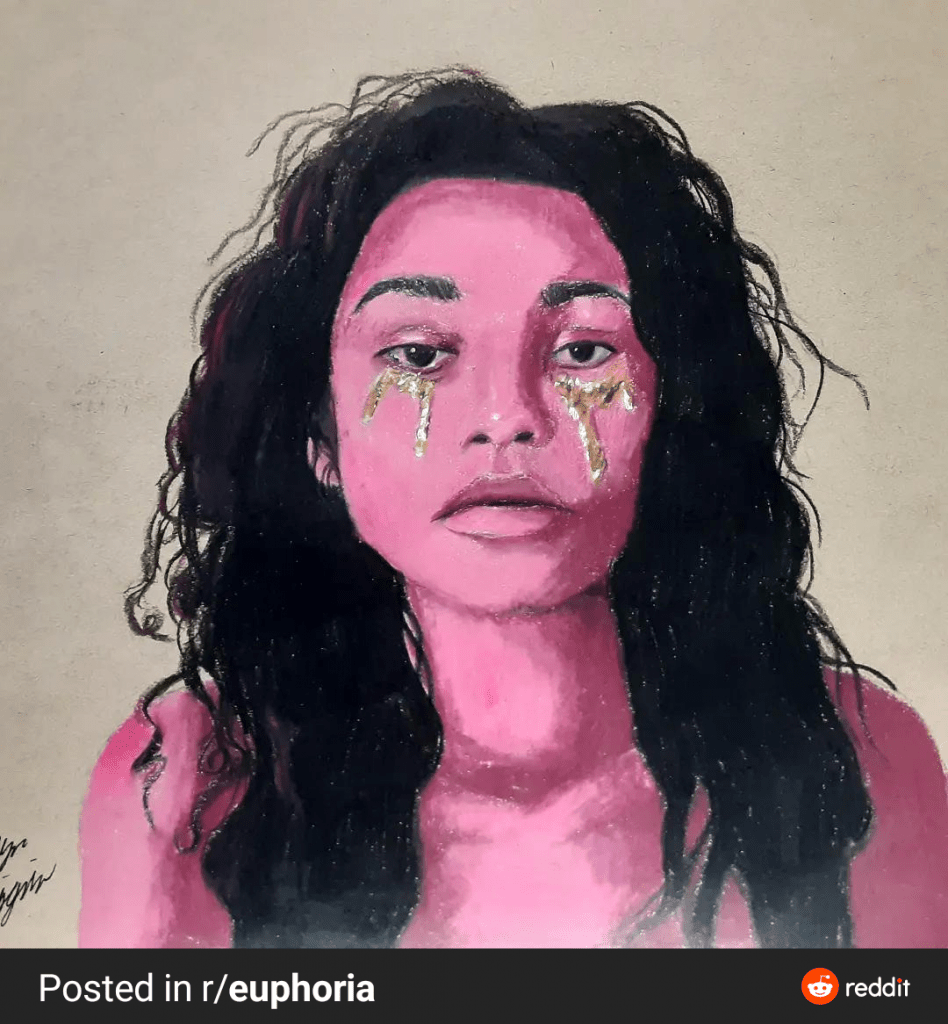
Rue’s unflagging unwillingness to introspect and externalize her rage is behavior which is quintessential of neurotic individuals. According to Karen Horney, externalization is when one sees everything outside of the self and suffers from issues of blame and importance (Burger 2018 p.98). Rue’s sobriety is something that she is unable to maintain, and she blames that on the passing of her father and directs her rage towards her mother and sister by threatening her with broken glass (Levinson et al 2019). She has no inhibitions towards her hostility and doesn’t try to address it head on. This is made apparent in the episode titled, “The Trials and Tribulations of Trying to Pee While Depressed.” Rather than actively attending AA meetings and work on actively maintaining her sobriety, Rue watches Love Island to drown out her sorrows and woes (Levinson et al 2019). This is akin to an avoidance coping strategy. This strategy entails people dealing with their emotions by pushing the anxiety-provoking situation out of awareness. Rather than introspecting and actively confronting her inability to maintain her sobriety, she just wishes to push it out of her realm of awareness and frankly, forget about it. However, because her history with drug abuse has become such an integral part of, she then turns her anger and general irritability to her mother and younger sister. She is vexed at herself for not being strong enough to confront her darkness but directs that blame to her sister and mother. Moreover, Rue also employs what Horney terms auxiliary approaches to artificial harmony. These approaches are seven unconscious devices that neurotics employ to deal with the inevitable conflicts in attempting to live an illusionary life. A specific approach that Rue employs is cynicism. Cynicism is when one does not believe in anything. They take pleasure in pointing out the meaninglessness of the beliefs of others. This is extremely apparent with Rue. In the special episode of Euphoria titled, “Trouble Don’t Last Always”, we see Rue being told by her sponsor, Ali, “You don’t believe there is anything greater than Rue.” Rue responds by stating, “I just don’t plan on being here that long.” (Levinson et al 2019) This is a devastating revelation yet completely understandable for the audience. Rue had a childhood filled with turmoil from the beginning. She wasn’t born into wealth and at a young age, witnessed her father losing his life to cancer. She admits that drugs are the only reason she hasn’t committed suicide (Levinson et al 2019). She doesn’t believe in anything or has hope for anything because of what she has lived through. She even doesn’t follow through with rehab or take steps to actively ameliorate her condition. This once again begs the question whether she is deeply wounded or irreparably broken.
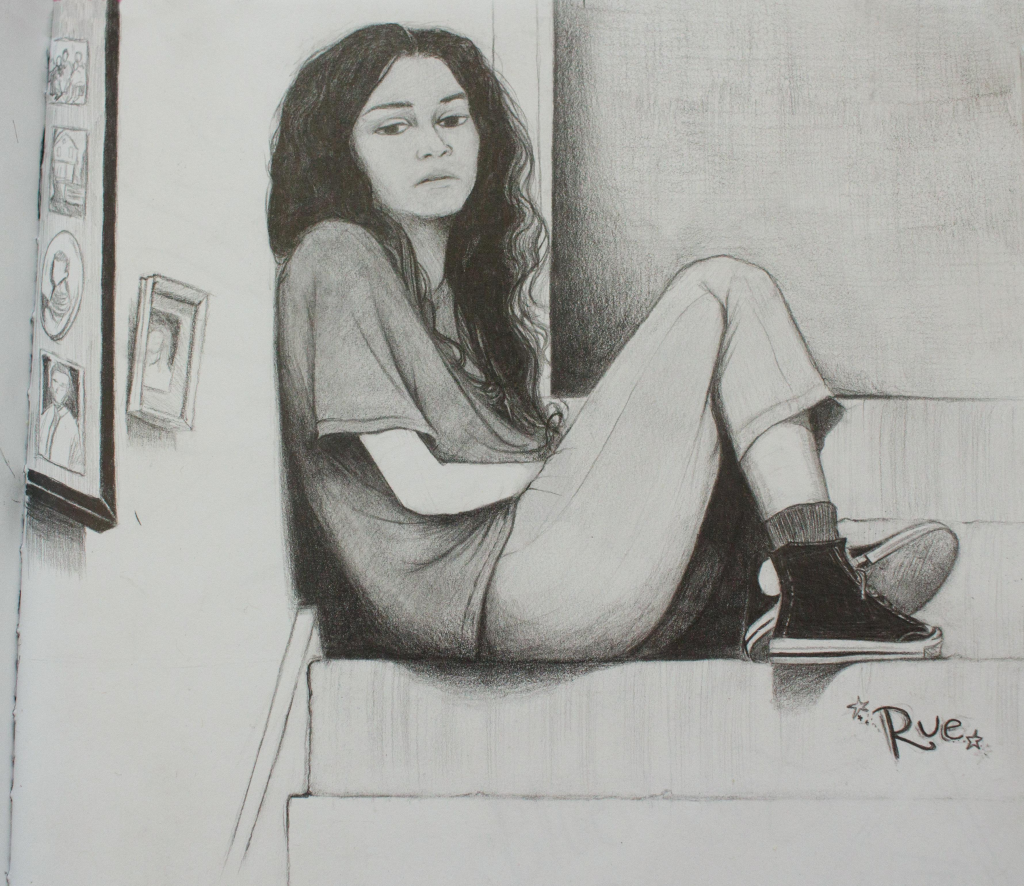
Furthermore, Rue Bennet’s personality can also be scrutinized through the lens of Alfred Adler’s theory of individual psychology. Adler believed that individuals seek companionship and harmony and that the mind is an integrated whole which works to help attain the future goals of the person (Burger 2018 p. 86). In essence, he focused on the idea that individuals are unique and not selfish. They are characterized by inner harmony and a striving to cooperate with fellow humans (Burger 2018 p.85). Rue does to a certain extent, demonstrate a desire to seek companionship and she isn’t entirely selfish. In the episode titled, “The Next Episode”, we see Rue mercilessly grill one of the twin brothers who was smoking marijuana with her younger sister, Gia. Rue, in a mercilessly stern and icy voice states, “My friends will strip you naked and go to work on you with a pair of pliers and a blowtorch. Do you hear me?” (Levinson et al 2019) This is one of Rue’s moments where her protectiveness, empathy and tenderness emerges. She doesn’t wish for her younger sister to struggle with addiction like she has, and thus nonchalantly threatens her sisters’ friend that there will be consequences if she finds out that Gia was coerced into smoking marijuana. She wants to safeguard her younger sister from a lifetime of pain and suffering that she had to endure. This is intriguing to consider despite Rue being the firstborn child. First-born children are the apple of their parents’ eyes until they are dethroned by the arrival of their youngest sibling and become the problem children with a strong perception of inferiority. While Rue is the problem child in her family, rather than being jealous of her sister she is protective of her and cares for her safety. Also, Rue’s need to seek out companionship is also evident when she socializes with Fezco and Ashtray, her drug dealers in “Pilot” (Levinson et al 2019). She has a comedic yet close relationship with them. This is made apparent in the pilot episode of the first season of Euphoria, when Ashtray tells her, “I thought you were dead.” Rue heartily chuckles but ripostes, “I thought you had Asperger’s but then I realized you are a prick.” (Levinson et al 2019) The light sarcasm makes it lucid that she enjoys their company while still using them for drugs.
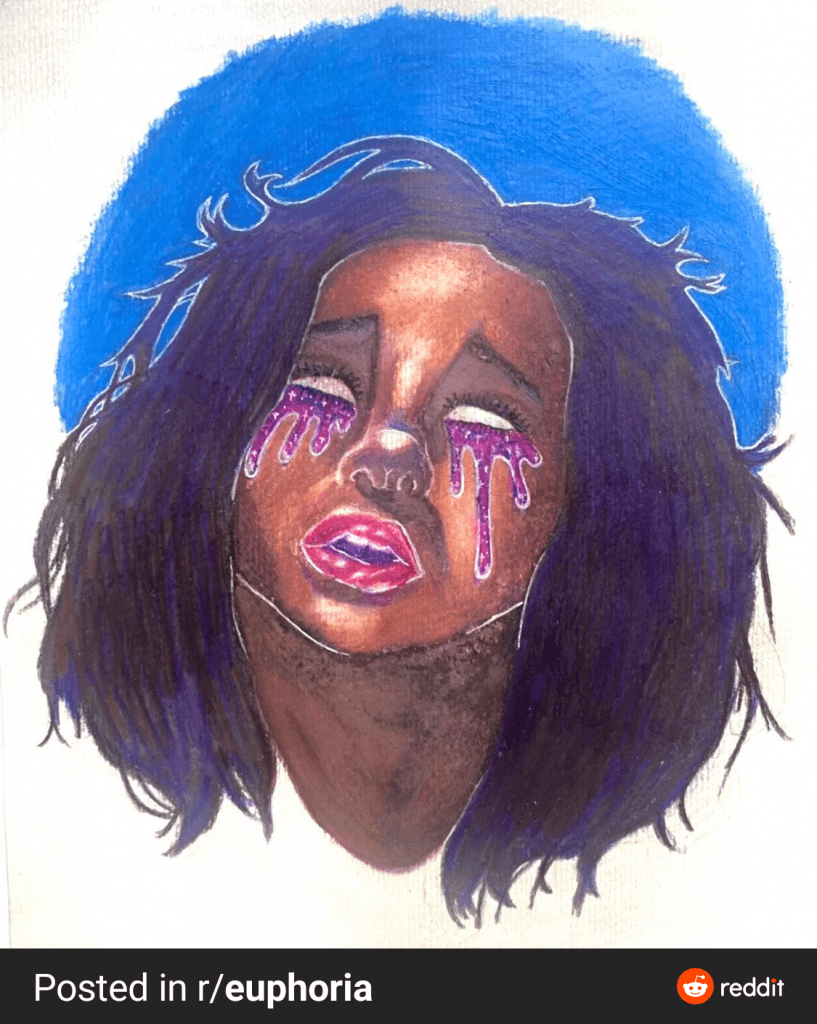
Next, Adler elaborates on the importance of birth order as well as parental influence on personality development. Like Horney, Adler believed that a parent is instrumental to the mental wellbeing of a child. Parental behaviors can lead to problems in a child’s life. Neglect occurs when children who receive little attention from their parents grow up callous, aloof, and suspicious. These children are incapable of warm, personal relationships. Given how much Rue misses her father, it is safe to assume that she was extremely attached to him. When she had to take care of him due to his cancer, she was putting his needs before her own and her mother couldn’t attend to Rue’s needs because she was the financial provider of the family now, with her dad terminally ill. As such, because Rue lost her father, her core was shaken and she had trouble with her romantic relationships because she fears abandonment and therefore, sabotages them before they can be explored further. This is evident when she sabotages her romantic relationship with her partner Jules by not staying sober the entire course of the relationship. Jules’ mother was an alcoholic and suffered deeply from addiction and Jules doesn’t want to be responsible for Rue (Levinson et al 2019). On the contrary, Jules wants to enjoy her life and be free-spirited and jaunty even though she deeply loves Rue. However, rather than focus on her sobriety and actively attend AA meetings and go to rehab, Rue isn’t willing to compromise and as such, continues to indulge in debauchery and still be with Jules thereby, limiting her relationship and romance by not being able to quit drugs. She even indulges in psychedelic drugs with Jules (Levinson et al 2019). This behavior is evident of the ruling-dominant type. Rue wants to reign supreme in everyone’s life- she terrorizes her mother and younger sister through physical aggression, and Jules even at one-point states to her therapist, “I feel like her sobriety is entirely dependent on how available I am to her.” (Levinson et al 2019) Rue has constructed her life in such a way that she is the most instrumental piece on the chess board, and she is the one who can have it all in her mind- fun with drugs and a sizzling romance with Jules. Rue’s behavior is a glaring cry for help, and she continues to use accusations (tendencies to blame others for her shortcomings) as a safeguarding strategy- blaming everything bad in her life on the passing of her father and taking revenge by harming herself by doing drugs and her mother and sister.
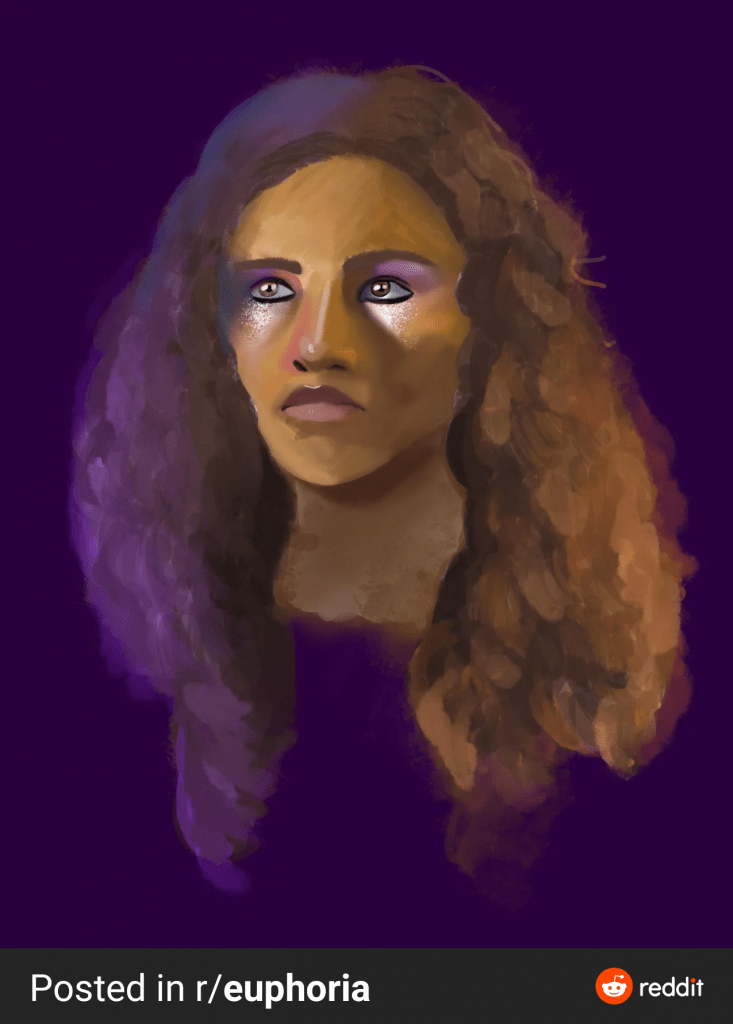
To conclude, the two critical perspectives from which I have analyzed the personality of Rue Bennett- Karen Horney’s theory of neurosis and Alfred Adler’s theory of individual psychology-reveal not only the manipulative, vindictive, and aggressive nature of Rue Bennett but also how critical factors and glass-shattering life experiences can shape the trajectory of one’s personality development. This analysis strongly indicates that parental influences, innate human drives, and needs, and one’s overreliance on defense mechanisms play a pivotal role in the emergence of maladaptive traits, behaviors, and interpersonal dynamics which can pave way for neurosis and/or a mistaken lifestyle as posited by Horney and Adler respectively. Therefore, while I believe that Rue Bennett was born deeply wounded with profound developmental challenges- anxiety, OCD, and bipolar disorder, the loss of her father and her reliance on drugs as a balm to numb her emotional pain led to her and her loved ones’ irreparable brokenness.
References:
American Psychological Association. (2020). APA Dictionary of Psychology. https://dictionary.apa.org/neurotic-needs
Burger, J. M. (2018). Personality (10th ed.). Cengage Learning.
Levinson, S, Turen, K., Nandan, R., Drake, Adel, F.N., Leshem, R., Levin, D., Lichtenstein, H.M., Lennon G., Toovi M., Yardeni, T, Mokadi., Y., Kleverweis, J., Zendaya, Greenfield., W., Levinson., A., Schafer., H. (2019-Present). Euphoria. HBO Max Entertainment.

veritatis debitis quos ut eaque soluta eius et omnis omnis eum. optio quasi similique veniam deleniti aliquam iure enim ipsum omnis adipisci recusandae amet a laborum aut optio qui dolorem. saepe aut accusamus sint et saepe neque quia aliquam nostrum aut magni et numquam facere et.